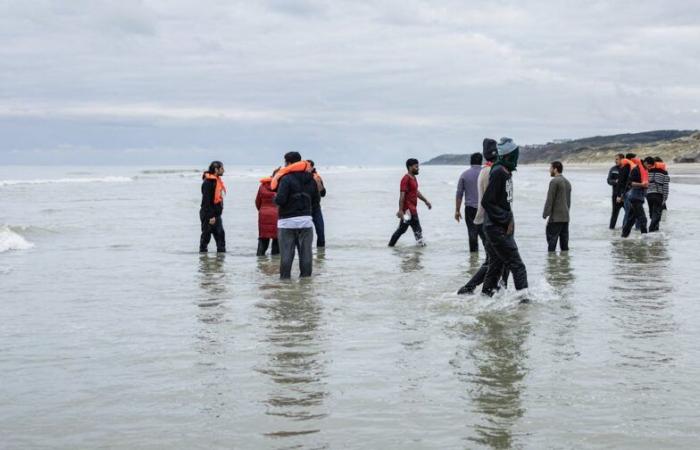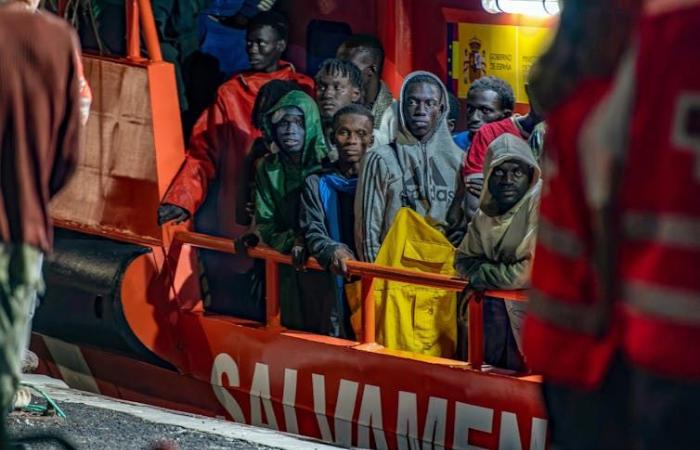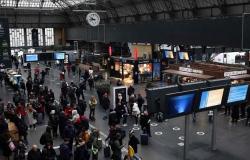By placing border control at the center of their foreign policy, France and European states intend to advance their interests and meet the expectations of their populations in terms of migration control. They actually allow their neighbors – for example Turkey, Tunisia, Morocco, Russia or Belarus – to have a means of pressure on them, or even to destabilize them.
During a meeting with prefects on October 8, Interior Minister Bruno Retailleau spoke of the use of “migratory diplomacy” to reduce immigration. The aim is to use foreign policy tools, such as development aid or trade agreements, to obtain cooperation from countries in the South in controlling borders and migration, for example by forcing them to readmit people expelled from France or to contain the departures of migrants.
Bruno Retailleau is inspired by Italian leader Georgia Meloni, at the forefront of these issues in Europe. Throughout trips to Tunisia, Egypt and Libya, the latter has placed immigration at the heart of its foreign policy.
This migration diplomacy is not new. As early as 2002, during the Seville Summit, the European Union decided to integrate immigration control into all its negotiations with third countries, whatever their purpose. Agreements on trade, culture or security, which do not directly concern migration, are therefore conditional on the cooperation of the States concerned in migration matters.
Read more: Outsourcing EU migration controls: a dangerous and ineffective policy
Migration, a geopolitical instrument
Migration policies have long been part of diplomatic relations. When it needed labor during the “thirty glorious years”, France turned to its former colonies where it was still very present, such as Morocco or Tunisia. Even today, migrations from Algeria are subject to specific provisions, which reflect the special link between the two countries (despite current questioning).
In Europe, in the 1990s, migration diplomacy served as a vector of European integration by opening borders to future Europeans from Eastern countries. The same is true elsewhere, such as in the Arab world or Africa, where states and regional organizations favor immigration from countries to which they are geographically and politically close.
Currently, for European states, migration diplomacy is essentially about using diplomacy for migration control purposes. In response, countries of departure and transit use migration for diplomatic or geopolitical purposes.
Valery Hache/AFP
Migration diplomacy then becomes the terrain of power struggles. So, whenever it disagrees with Europe, Turkey threatens to suspend the 2016 agreement with the EU, under which it detains migrants and refugees en route to Greece. Likewise, Morocco “markets” its cooperation in terms of controlling the mobility of sub-Saharan migrants towards Europe.
Are the balance of power to the advantage of the North?
At first glance, the countries of the North are in a strong position to impose their migration priorities on the countries of the South, who would have no other choice but to cooperate if they want to obtain commercial advantages, visas for some of their nationals or development aid. However, we often observe the opposite dynamic. Southern countries are reversing this asymmetry by using European hypersensitivity on immigration to their advantage.
The focus of the media, governments and European public opinion on illegal migration creates a fear of migration, perceived as a major “problem”, and makes European countries vulnerable to the instrumentalization of migration or asylum by others. other states.
The instrumentalization can go as far as the “weaponization” of migrations, that is to say the use of migrants as a weapon. Russia and Belarus have transported asylum seekers from the Middle East to threaten countries like Lithuania, Finland and Poland. Here again, this practice is not new: in 1994, during the Balseros crisis, Fidel Castro encouraged the departure of thousands of Cubans to Florida to destabilize the United States. The manufacture of migratory crises is old but it is more visible today than yesterday, in a context where the perception of immigration “as a crisis” has become widespread.
It is difficult to assess the effectiveness of European migration diplomacy. The agreement between the EU and Turkey, as well as the current cooperation between Italy and Tunisia, have undoubtedly made it possible to reduce arrivals. But it is refugees from Syria, Iraq, Sudan and Afghanistan who are blocked rather than so-called “economic” migrants. These agreements therefore probably do not reduce irregular immigration, but redirect flows via other routes. In 2024, the Canaries face an increase in migrant arrivals, probably linked to the greater surveillance taking place off the coast of Italy and Greece.
Antonio Sampere/AFP
The inconsistencies of migration diplomacy
Migration diplomacy also suffers from its inconsistencies. It risks destabilizing the regions of departure, by calling into question other objectives of international cooperation such as development, human rights or democracy – and therefore fueling future migrations.
In West Africa, for example, the outsourcing of European border control calls into question the free movement of people in the region. This is particularly the case in Niger and Mali, countries strategically located on the migration route from West Africa to Libya. Despite resistance to European influence, these countries are in the process of “reborderization”.
Migration diplomacy also allows authoritarian regimes to stay in power. This was the case for Gaddafi in the 2000s, who emerged from his diplomatic purgatory thanks to migration.
It allows them to strengthen their repressive apparatus under the guise of strengthening border control. This is how, on the outskirts of the Spanish enclave of Melilla in Morocco, Moroccan police regularly shoot migrants with rifles paid for by Europe. In Libya, the European Union is negotiating control of migratory networks with armed groups: this strengthens criminal networks and militias, and raises questions from a security point of view.
The countless abuses documented on migration routes also attest to the disastrous consequences of border externalization for migrants – but also for societies as a whole. In Tunisia, civil society which helps migrants is repressed.
Migration diplomacy and multilateralism
Faced with these impasses, it is necessary to think of another migration diplomacy which would not be reduced to the externalization of European problems to the rest of the world, or to the instrumentalization of migrants and refugees.
Like climate or trade, migration is a global reality that no State can govern alone, and which therefore requires a political strategy developed jointly by all the countries concerned.
But it must be admitted that migration multilateralism remains limited: the international law convention on migration adopted in 1990 by the UN has had little effect. In 2018, the two global “pacts” on migration and asylum had little support from states.
But paradoxically, it is perhaps the difficulties they encounter in governing migration that could lead them to rethink the usefulness of true multilateral migration diplomacy.







